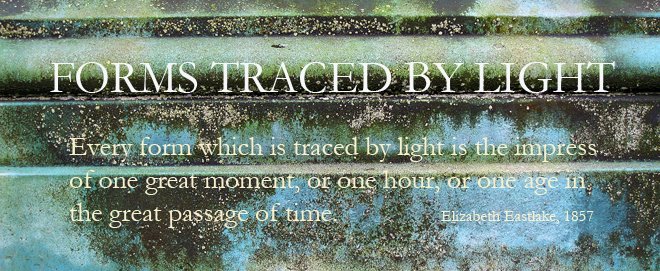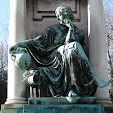... in which we discover textual differences between the UK (as in the Penguin) edition of To the Lighthouse and the US one (as in the Harcourt) - not to mention a further aberration in the Everyman. This led to a discussion to textual editing and decisions about [non] authoritative texts. And yes, speaking of parentheses, there's even a difference about at least one stand-alone chapter-paragraph: square brackets [which in a moment of inspiration, though I expect others have been there, often, before me, I compared to a picture frame] in one, round parentheses in the other.
I found teaching this text extraordinarily difficult today. I knew Woolf toyed with considering it an "elegy;" it had never gripped me so painfully as being about personal loss as it did on this re-reading. Loss - not just of my mother, but yesterday, of an incredibly dear family friend, Gwen Pascal - my mother's best friend at school: born within two months of each other; died within three months of each other; my entrée (together with her husband Claude) into France - a woman who was incredibly kind to me, and also so much fun to be with. I'll write more about her soon.
It was when - a few hours before class - I came to Lily's thoughts about [the late] Mrs Ramsay that I pretty much lost it: how thinking of her was pretty safe, but that there was such a thing as "these emotions of the body ... It had seemed so safe, thinking of her. Ghost, air, nothingness, a thing you could play with easily and safely at any time of day or night, she had been that, and then suddenly she put her hand out and wrung the heart thus." Strange, perhaps, that describing the effects of a trigger should be a trigger ... Then add to that the fact that some of Mr Ramsay's ways of coping with loss and grief seem horribly close to those of my own father (though no tyrannical boat trips involved ...) ... it wasn't easy. Of course, professional composure returned: it always does. But literature can trip you up.



No comments:
Post a Comment